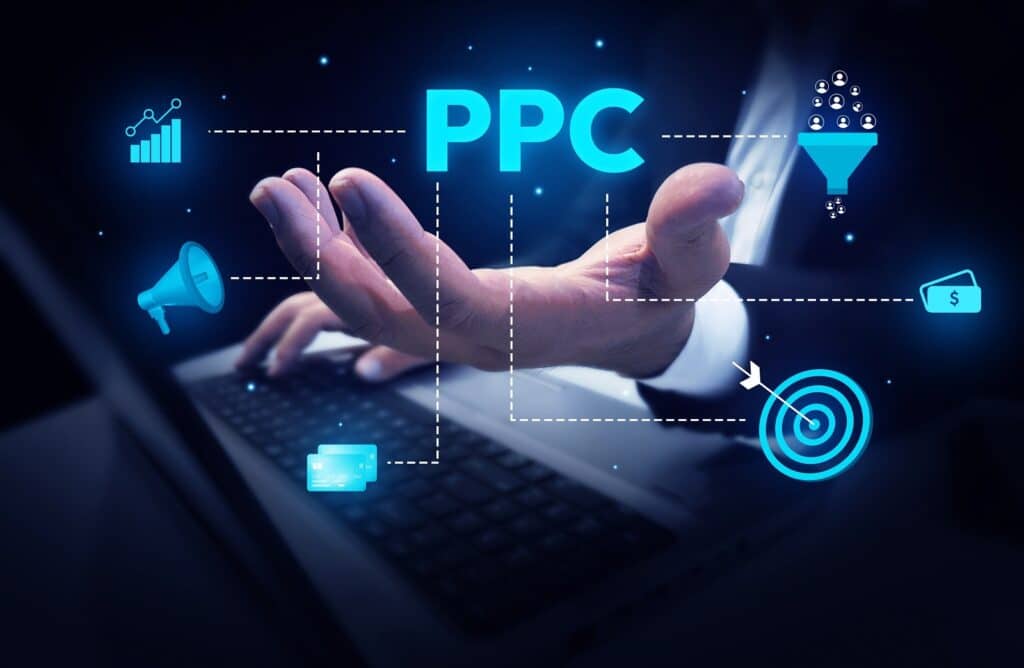5 Reasons Why Paid Search Should Be Part of Your Marketing Strategy
Paid search advertising has become a cornerstone of modern digital marketing. By placing targeted ads atop search engine results, businesses capture high-intent customers right when they’re looking for products or services. Dallas and Fort Worth companies that integrate paid search into their marketing mix enjoy immediate visibility, precise audience targeting, and measurable ROI. Below are five data-backed reasons to make paid search a priority in your marketing strategy.

1. Immediate Visibility and Fast Results
Organic search efforts can take months to yield first-page rankings. Paid search ads appear instantly above the fold on Google and Bing, putting your brand in front of customers the moment they type relevant keywords.
- Zero wait time: Campaign launch to live ads can take as little as an hour.
- High-intent placement: Ads at the top of search results capture users actively seeking solutions, delivering average click-through rates of 7.5% on Google Search Network.¹
- Seasonal agility: Ramp up ad spend quickly during peak seasons—holidays, tax time, back-to-school—without waiting for SEO traction.
Why it matters for DFW businesses: Local roofing, HVAC, law, and healthcare firms can target “roof repair Dallas” or “Fort Worth family lawyer” and instantly dominate local SERPs, outpacing competitors still relying solely on organic tactics.
2. Precision Audience Targeting
Paid search platforms offer granular targeting controls that narrow in on your ideal customers rather than a broad audience. Target criteria include:
- Keywords & match types: Exact, phrase, and broad match ensure your ad shows only for relevant queries.
- Location: City, ZIP code, or radius targeting reaches users near your storefront or service area.
- Device & time: Allocate budget to desktops during business hours or to mobile users on evenings/weekends.
- Audience segments: Remarketing lists, in-market audiences, and custom intent groups let you reengage previous visitors or reach people researching your offerings.
By combining these factors, paid search helps you avoid wasted impressions and clicks. An international study found granular targeting reduced cost-per-acquisition by 35%.²
Dallas/Fort Worth example: A local dentist can bid on “emergency dental care Dallas” but exclude non-urgent searchers and non-Dallas ZIP codes, driving more qualified leads at lower cost.
3. Clear, Measurable ROI
Every click, conversion, and dollar spent on paid search is tracked in real time. Metrics like impressions, clicks, conversion rate, and cost-per-conversion provide full transparency.
- Attribution models: First click, last click, and linear models show which keywords drive conversions.
- A/B testing: Test ad copy, landing pages, and extensions to optimize for highest ROI.
- Budget pacing: Daily and lifetime budgets prevent overspend and allow mid-campaign adjustments.
Google Ads advertisers report an average $2 return for every $1 spent.³ That 2:1 ROI, combined with detailed analytics, ensures you invest in what works—and cut what doesn’t.
4. Flexible Budget Control
Paid search accommodates budgets of all sizes, from local startups to enterprise brands. Key features include:
- Daily budget caps: Prevent runaway spend by setting maximum daily budgets per campaign.
- Bid strategies: Automated bidding (e.g., Target CPA, Maximize Conversions) adjusts bids to meet cost goals without manual oversight.
- Ad scheduling & device allocation: Shift budget to days, hours, or devices that deliver peak performance.
Businesses can scale up or down instantly. A recent survey found 68% of SMBs appreciate PPC’s budget flexibility over fixed-cost media like TV.⁴
For local DFW businesses: A small plumbing company can start with $20/day, test keywords for “leaky faucet repair Fort Worth,” then scale to $100/day once profitable keywords emerge.
5. Complements and Accelerates SEO
Paid search and SEO share common goals—visibility and traffic—but paid ads occupy prime SERP real estate that organic results can’t. Integrating both channels yields synergistic benefits:
- Keyword insights: High-performing PPC keywords inform organic content strategy, uncovering long-tail terms that convert.
- SERP real estate dominance: Combining paid and organic listings increases total impressions by up to 92%.⁵
- Brand trust: Users seeing your brand in both paid and organic results perceive greater authority and are 2.5x more likely to click.⁶
By aligning paid search data with on-page SEO and content marketing, DFW companies accelerate overall digital growth and capture market share faster than peers relying on a single channel.
How to Get Started with Paid Search
- Define clear goals. Identify whether you seek calls, form fills, store visits, or e-commerce sales.
- Perform keyword research. Use tools like Google Keyword Planner to find high-intent local search terms.
- Craft compelling ad copy. Highlight unique selling points—“Guaranteed ROI,” “24/7 service,” “Local experts.”
- Design conversion-focused landing pages. Ensure fast load times (<3 seconds), clear headlines, and strong CTAs.
- Set up tracking. Implement conversion tags and Google Analytics goals to measure every action.
- Optimize continuously. Review performance weekly, pausing underperforming keywords and boosting top performers.
Paid search can transform how Dallas and Fort Worth businesses reach customers online. Everyday Media Group combines local expertise with data-driven PPC strategies to maximize your visibility, drive qualified leads, and deliver measurable ROI. Ready to launch or supercharge your paid search? Reach out today and let us show you why we’re the best digital marketing agency for Dallas and Fort Worth.
References:
- Google Ads Benchmarks Report, 2024.
- PPC Performance Study, MarketingTech, 2023.
- Google Economic Impact Study, 2022.
- SMB Digital Marketing Survey, U.S. Chamber of Commerce, 2023.
- Search Engine Journal, “Organic + Paid Synergy,” 2021.
- Nielsen Consumer Trust Index, 2020.

